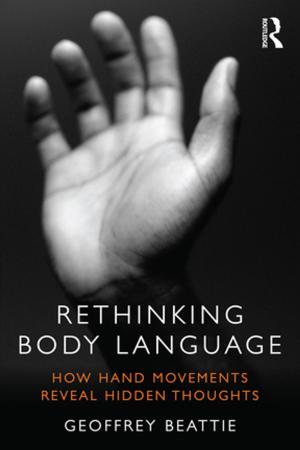Gender and the Intersubjective Sublime in Faulkner, Forster, Lawrence, and Woolf
Fiction & Literature, Literary Theory & Criticism| Author: | Erin Speese | ISBN: | 9781317130383 |
| Publisher: | Taylor and Francis | Publication: | September 22, 2017 |
| Imprint: | Routledge | Language: | English |
| Author: | Erin Speese |
| ISBN: | 9781317130383 |
| Publisher: | Taylor and Francis |
| Publication: | September 22, 2017 |
| Imprint: | Routledge |
| Language: | English |
Exploring how the modern novel's complex depictions of parenthood restructure traditional conceptions of the Romantic sublime, Erin K. Johns Speese shows how William Faulkner, E.M. Forster, D.H. Lawrence, and Virginia Woolf use related strategies to rewrite the traditional sublime as an intersubjective experience. Speese shows that this reframing depends on the recognition of social objectification and an ethics of reciprocal empathy between mothers and fathers. She juxtaposes traditional aesthetics and Slavoj Žižek’s concept of the sublime object of ideology with recent theoretical work regarding identity, arguing that these modern novelists construct what she terms a "sublime subject," that is, a person who functions in the space of the traditional sublime object. In revealing the possibility of transcendent emotional connection over reason, these novelists critique the objectification of the other in favor of a sublime experience that reveals the subject-shattering power of empathy.
Exploring how the modern novel's complex depictions of parenthood restructure traditional conceptions of the Romantic sublime, Erin K. Johns Speese shows how William Faulkner, E.M. Forster, D.H. Lawrence, and Virginia Woolf use related strategies to rewrite the traditional sublime as an intersubjective experience. Speese shows that this reframing depends on the recognition of social objectification and an ethics of reciprocal empathy between mothers and fathers. She juxtaposes traditional aesthetics and Slavoj Žižek’s concept of the sublime object of ideology with recent theoretical work regarding identity, arguing that these modern novelists construct what she terms a "sublime subject," that is, a person who functions in the space of the traditional sublime object. In revealing the possibility of transcendent emotional connection over reason, these novelists critique the objectification of the other in favor of a sublime experience that reveals the subject-shattering power of empathy.















